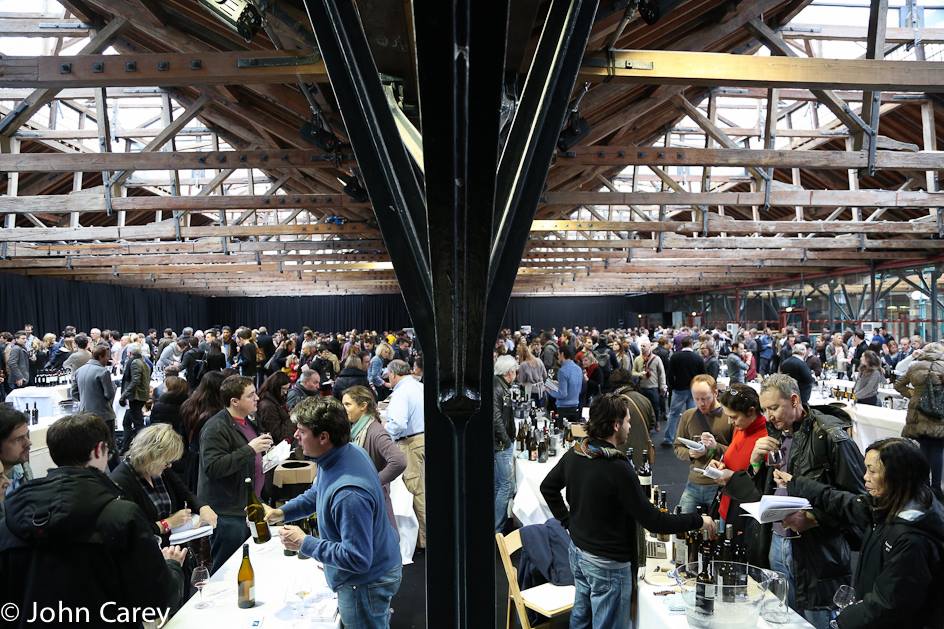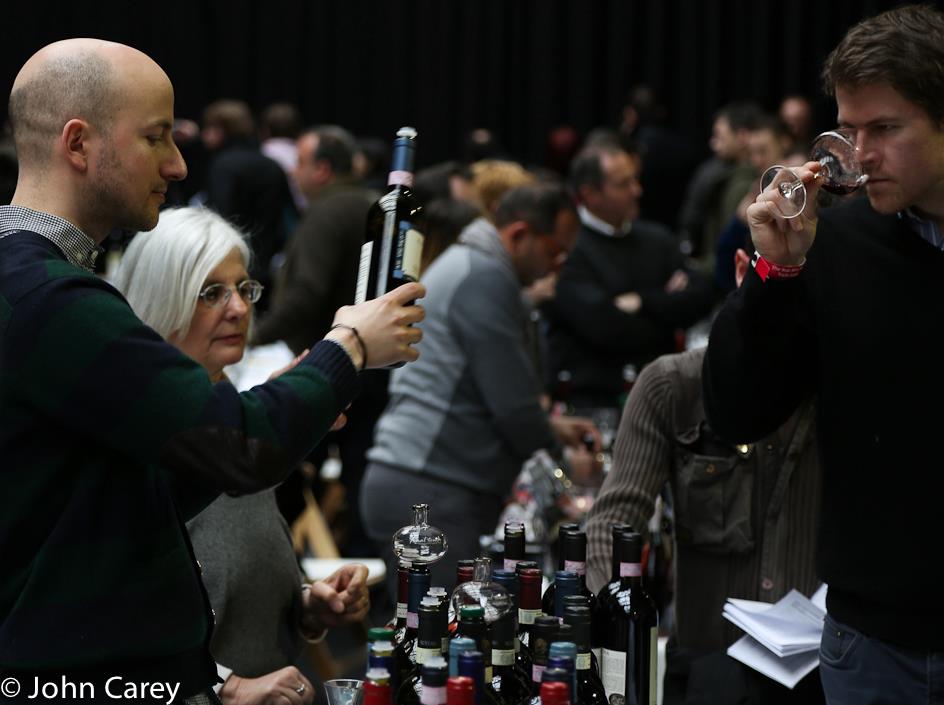
Like them or not our tastings are fun; the wines being full of vitality and dare one say, peculiar energy. These wines move by the hour, by the minute, they unfold their charms like beautiful flowers or ravel them up like boorish misers. They are as unpredictable as people and like people you can take them or leave them. What is not appropriate is to dismiss them all as bad or incorrect. For some wines are as straight as a die, clean-fruited, simple. Others are linear, and yet others are multi-dimensional and complex. Some flirt with the edge of conventional wisdom (!) and would only be loved by the fiercest adherents of all things natural, and some might even be unacceptable to lovers and loathers alike; we expect to find more than the odd–very odd sometimes–bottle that is stinky or downright unpleasant.
Do a handful of wrong ‘uns undermine the case for the natural defence? Of course not, any more than all tastings will inevitably contain wines that are imperfect, unbalanced or downright undrinkable. We should never judge the many on the basis of the few.
And whilst we never court critical endorsements of natural wine, we would, however, expect each wine to be tasted on its merits, in the spirit of open-mindedness and enquiry. Those who come to our tastings largely want to be engaged, to describe their impressions and to interact with us – for wine tasting is nothing if not a social activity as well as an opportunity to expand one’s horizons. A few may prefer to keep their own counsel, focusing purely on the objective, dredging mots justes from the lexicon of conventional precision, whilst a minority still would sigh and roll their eyes and retreat into their critical carapaces as every wine confirms their preconceived notion that natural wines are up to no good, no how.
A mind that questions everything, unless strong enough to bear the weight of its ignorance, risks questioning itself and being engulfed in doubt. If it cannot discover the claims to existence of the objects of its questioning—and it would be miraculous if it so soon succeeded in solving so many mysteries—it will deny them all reality, the mere formulation of the problem already implying an inclination to negative solutions. But in so doing it will become void of all positive content and, finding nothing which offers it resistance, will launch itself perforce into the emptiness of inner revery. –Emile Durckheim, French Sociologist
This could be the perfect description of the wine cynic, but is perhaps not the best analogy, as the cynic does not normally interrogate his or her opinions but tastes to reinforce an existing prejudice. It is an empty exercise, because such tangible dislike of wines is based on a pseudo-scientific belief that wines dovetail into neat categories – this is correct, whereas that is not so. Once you have painted yourself into these Manichean certainties, you cannot row back, profess doubt or even admit that there may be a relative position.

All life is a dispute about taste and tasting. –Friedrich Nietzsche
Taste is necessarily subjective and since people are individuals and not machines they are also flawed. You could get a machine to measure wines for undesirable chemical abnormalities; but who decrees what is desirable? The machine has no sense of taste or higher aesthetic purpose. Were I to programme a tasting machine I would ask it to pick out higher than average sulphur levels and to assess where additives had obviously influenced the taste of the wine, for a wine made in a factory or a laboratory is so far removed from the vineyard, the grapes and the wine grower that it ceases to be a living product. Which is a fault in my book. Thus my criteria as to what makes a wine desirable or drinkable may openly contradict another person’s.
It is good taste, and good taste alone, that possesses the power to sterilize and is always the first handicap to any creative functioning.
The rational (and intuitive) approach embraces wine by judging in the round. It is deductive as well as inductive, using all the information available to arrive at a conclusion rather than relying on imperfect sensory apparatus. It is creative as well as responsive. Yes, a tasting is many things; but in conventional circles it is often foremost an extension of the ego of the taster, it is the super-analysis of the wine in the glass at the time, rarely the contextual understanding of that wine, by which I mean, hearing the story behind it, talking to the grower, discovering the intention. Since wine is the product of natural interventions and human decisions, the more information we have, the keener our assessment.
Objectifying the process makes for an interesting yet unreliable game; the palate of the taster qua taster, trained or otherwise, becomes the sole (and arbitrary) focus. A priori knowledge is rejected, the here-and-now exalted, whilst the inherent prejudices of the taster (which calibrate his or her palate to respond in a predictable fashion) serve to undermine all pretence of professional objectivity. This is the contradiction inherent in tasting. If someone judged us on appearances and first impressions; by the way we dress, the colour of our skin, our initial behaviour, we would naturally feel aggrieved. And yet some tasters affect to judge wine absolutely within a couple of seconds. The more complex, unknowable wines are too often rapidly dismissed and the less immediately agreeable ones are slapped down. The mutability of wines made without additives makes them tricky customers, by definition; you have to give a little to take a lot, or relax and recalibrate your palate. Once you do so the wines make sense; its characterful nature becomes a function of the wine itself rather than a loose adjunct of style. Wines do not exist to make the life of the taster easier; they may be edgy, nervous and prickly to a fault; that is their nature. The empathetic taster confronts such wines on their own terms.

